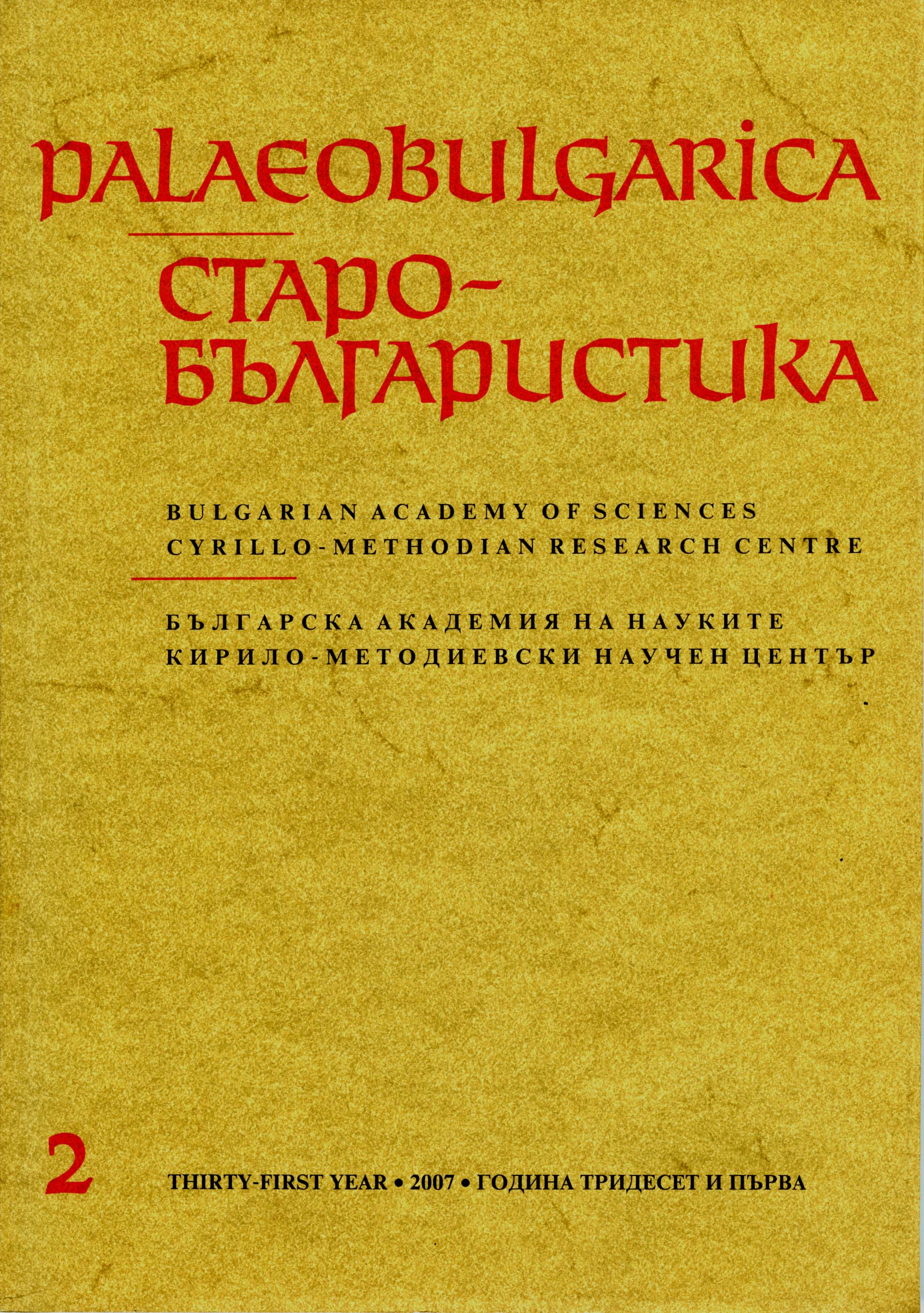Бележки върху „грешките“ в среднобългарския превод на Хрониката на Константин Манасий
Some Notes on Alleged “Mistakes” in the Middle Bulgarian Translation of Constantine Manasses' Chroni
Author(s): Vassya VelinovaSubject(s): Language and Literature Studies
Published by: Кирило-Методиевски научен център при Българска академия на науките
Summary/Abstract: The so-called "mistakes" in the middle Bulgarian translation of Constantine Manasses' Chronicle are analyzed and an attempt is made to systematize them. It is well known, that in the first edition of the middle Bulgarian text of the Chronicle the Rumanian scholar Jon Bogdan (1922) identified more than hundred mistakes in the text and indicated them in the glossary, published in the second part of its edition. The new critical edition of the Greek text of Manasses' Chronicle (1999) allows for an examination of both the translation and the Byzantine source and permits to re-interpret Bogdan's conclusions. The main reasons for the alleged “mistakes” are: iotacism, causing the confusion of vowels; perception of diphthongs as one vowel; confusion of consonants and metathesis. These phenomena have all been evidenced in the translation of texts with theological content and the Chronicle is no exception. In these cases the mistakes are probably the result of dictation. On the other hand there are examples in the paper where the Greek tradition of the Chronicle offers new variants for "wrongly" interpreted words. The main group of alleged mistakes is connected to the question of the Bulgarian reception of Greek Antiquity, because all the names of mythological persons were translated morphemically or (if this was impossible) they were left out in the Bulgarian translation. In such cases it is better to speak of discrepancies and not of "mistakes". Examples of similar translations of toponyms and zoonyms support this conclusion. Two main conclusions are reached in the article. The first one is that Manasses' Chronicle was translated in the same way as liturgical texts; there was no difference in the technique of translation. The second one is that we must be most tolerant when judging medieval translations and that we should speak of discrepancies rather than mistakes, because in many cases the "mistakes" are caused by the particularities of the Greek text.
Journal: PALAEOBULGARICA / СТАРОБЪЛГАРИСТИКА
- Issue Year: 2007
- Issue No: 2
- Page Range: 49-61
- Page Count: 13
- Language: Bulgarian
- Content File-PDF

